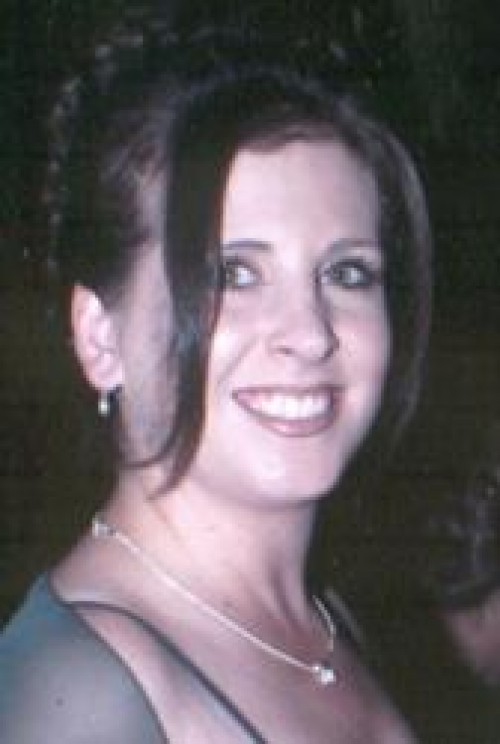Ernest Rodrigue
April 16, 2007
Antoinette Rodrigue
April 18, 2007Local lawmakers agree Terrebonne Parish needs another judge seat -but whether the post is opened in city court or the 32nd Judicial District Court should be up for review, said state Sen. Reggie Dupre (D-Bourg).
Houma City Court Judge Jude Fanguy asked the Terrebonne Parish Council last week to hire another full-time judge to ease the workload.
Fanguy’s request prompted Councilwoman Arlanda Williams to ask her colleagues to form an ad hoc committee n comprised of members of the community and government n to study the parish court system as a whole.
“Should we make this a minority set-aside seat,” Williams asked. “Should we combine the city court with our judicial district court?
“Whatever the case, it’s time we take a look at our court system for a second judgeship. And, in order to properly do so, we need to form an ad hoc committee to discuss what our needs are,” she said.
Dupre agrees with Williams.
“A second judgeship goes way beyond whether or not we need to add to the City Court,” Dupre said. “This committee needs to look at what this district’s needs are, that is, what the parish needs are, versus what the city’s needs are.
“All the relative players need to come to the table,” he said.
Once the parish council decides what is need, the Louisiana State Judicial Council will review the choice, Dupre said. The state Legislature has the final say.
“This is a very strict group, who analyzes everything. And frankly, I think that since Terrebonne Parish has the only parishwide city court in the state, perhaps our chances of getting a second seat in this area are slim. Therefore, I think we need to look toward a sixth seat in our 32nd Judicial District Court, or perhaps combining the City Court with the Judicial District Court,” Dupre said.
Terrebonne Parish currently has five judges in the 32nd Judicial District Court: Judges Edward J. Gaidry, Divison A; Johnny Walker, Divison B; Timothy Ellender, Division C; David Arceneaux, Division D; and Paul Wimbish, Divison E.
Regardless of the council’s decision, Dupre said it wouldn’t be taken into consideration during this legislative session. Because the upcoming session is dedicated to fiscal matters only, a Judicial Council recommendation couldn’t be heard until next year.
Jerome Boykin, president of the Terrebonne Parish Chapter of the National Advancement of Colored People, has long supported adding a minority seat.
And attorney Craig Stewart, who made parish history last spring as the first-ever black to sit on the bench as a judge n even if it was for just one day n thinks a minority seat would send a message to minorities in Terrebonne Parish that their views and concerns count.
Boykin said another judge seat in Terrebonne is way overdue, particularly one that’s a minority seat.
“Terrebonne Parish is a diverse community. We at the NAACP feel strongly that our local state and federal boards, along with our judicial system, should represent the community it serves,” he said. “Since over 70 percent of the people incarcerated in this parish are African-American, then our judgeship should reflect that.”
Stewart advocates adding a second judge seat “because of the growth in Terrebonne Parish.”
A Terrebonne native, Stewart worked as a former assistant U.S. District Attorney, Eastern District, with Eddie Jordan, from 1999 to 2003.
He said he is also familiar with the heavy workload in City Court, especially after having experienced the job first-hand, when Fanguy asked him to sit in for a day last year.
City Court hears civil lawsuits under $20,000, some misdemeanor adult criminal cases and most juvenile cases.
“Judge Fanguy has a full workload,” Stewart said. “To put it simply, with growth comes legal actions over housing, businesses, civil actions and, of course, criminal caseloads.”
Regarding adding a minority seat, he said, “African-Americans don’t believe they get a fair evaluation because all of our current judges are Caucasian, so in that light, a minority seat can only be a benefit.
“Nonetheless, how can a judiciary not grow, when there is growth in the area?” Steward added.
In the interim, Fanguy presented the Council with two suggested budgets, one detailing the cost of another full-time judge in the City Court, and the other, for a part-time hearing officer.
The budget for a full-time judge and a staff totals $488,528 in salaries and benefits. This includes:
• $98,897 for the judge’s salary.
• $65,484 for one deputy clerk.
• $108,444 for three deputy marshals.
• $60,690 for one City Court prosecutor.
• $80,000 for two Indigent Defender Board attorneys.
• $75,013 for two Indigent Defender Board staff members.
Under this plan, there would also be capital expenditures, including the need for a van for the marshal’s office to transport prisoners, as well as office equipment, furniture, computers, additional phone lines and telephones.
The budget for a part-time hearing officer and staff totals $287,994 in salaries and benefits.
This includes:
• $68,815 for the hearing officer.
• $32,742 for one deputy clerk.
• $108,444 for three deputy marshals.
• $40,000 for one Indigent Defender Board attorney (a contract salary).
• $37,993 for one Indigent Defender Board staff member.
The same capital expenditures apply.
In other business, it was announced City Court reopens in bigger offices this week at the former George Arceneaux U.S. Courthouse, 8046 Main St.












